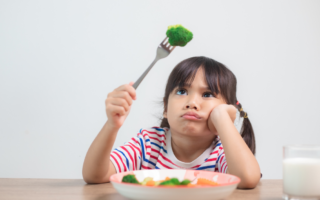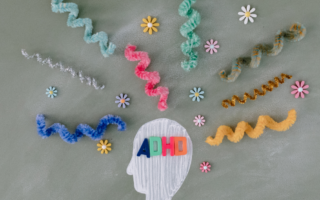As a mom parenting a child with ADHD, encouraging healthy eating habits can be challenging but is incredibly important.
The ADHD-Diet Connection: What Every Mom Should Know
First things first: while diet isn’t a magic cure for ADHD, it can make a real difference in your child’s behavior and focus. Here’s why:
Brain Food is Real
Balancing Act
Many kids with ADHD struggle with blood sugar ups and downs. A balanced diet can help keep those levels steady, potentially improving focus and reducing mood swings.
Inflammation and ADHD
Some research suggests a link between inflammation in the body and ADHD symptoms. Certain foods can either increase or decrease inflammation, potentially affecting how your child feels and behaves.
Superfoods for Kids: What to Put on Their Plate
Now, let’s talk about some foods that might give your child’s brain a boost. According to medical news today, here are the best foods for keeping the energy levels high and the blood sugars stable for improved concentration:
Protein Power
Protein is crucial for brain health and can help stabilize blood sugar levels. Try incorporating:
- Lean meats like chicken and turkey
- Fish, especially fatty fish rich in omega-3s
- Eggs (try fun shapes to make them more appealing!)
- Greek yogurt (mix in some fruit for a tasty treat)
Complex Carbs for Steady Energy
Unlike sugary snacks that can cause energy spikes and crashes, complex carbs provide a steady source of fuel. Some kid-friendly options include:
- Whole grain bread or pasta
- Sweet potatoes (try cutting them into “fries” and baking them or popping them in the air fryer). My favorite frozen sweet potato fries is from a great company called Roots. Delicious and so easy to pop in the air fryer.
- Oatmeal (let your child add their own toppings for a fun breakfast)
Omega-3 Fatty Acids
These healthy fats are essential for brain function. Good sources include:
- Fatty fish like salmon (try making fish sticks at home)
- Walnuts (chop them up and add to yogurt or oatmeal)
- Chia seeds (they’re great in smoothies)
Colorful Fruits and Veggies
Packed with vitamins and antioxidants, fruits and veggies support overall brain health. Make it fun by challenging your child to “eat the rainbow” each day.
Foods to Approach with Caution
While no foods need to be completely off-limits, some may worsen ADHD symptoms in certain kids:
Simple Sugars
I think this is the category that is most difficult to manage. However, just a reminder that foods high in added sugars can cause rapid spikes and drops in blood sugar. I have personally noticed a difference in mood when they consume too much of the following:
- Sugary drinks
- Candy
- Many processed snacks
Artificial Additives
Some studies suggest that certain food additives may increase hyperactivity in some children with ADHD. A good friend of mine introduced me to this great app called Yuka which deciphers product labels and analyzes the health impact of food and products according to their website. I happen to use it quite a bit when I shop.
- Artificial colors
- Artificial flavors
- Preservatives
The Bigger Picture
While diet can be a powerful tool in managing ADHD symptoms, it’s just one piece of the puzzle. A comprehensive approach typically includes a combination of strategies, which may include medication, behavioral therapy, and other lifestyle changes. By making mindful choices about what goes on your child’s plate, you’re taking an active role in supporting their health and potentially easing their ADHD symptoms.
Always consult with your child’s healthcare provider before making significant changes to their diet or treatment plan. They can help you determine the best approach for your child’s individual needs.
In my next blog post I’ll tackle the common challenges that parents face when trying to improve their kids diet.











